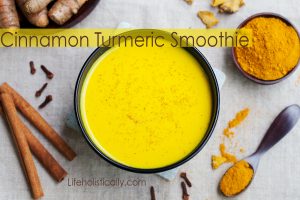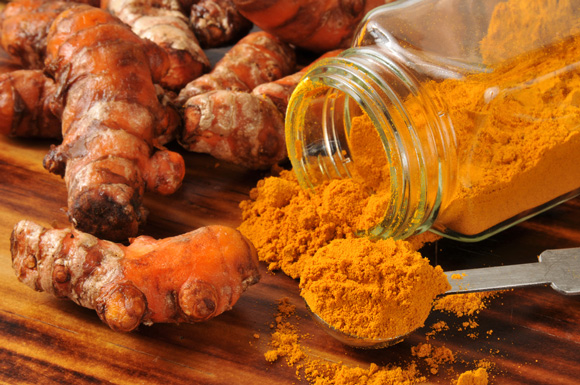Lifeholistically is a huge fan of emotional healing using essential oils, clearly defined in the latest book, Emotional Healing with Essential Oils- Get your copy here. Wellness requires a full range of methods and efforts, including what we put on our plates. Proper health begins in the kitchen. In looking at mental wellness, there are many things we can put on our plate to enhance it. These are the top foods to support mental wellness.
There are four pieces that I like to look for in food; call them the fab four. Those are dopamine (tyrosine precursor), choline, serotonin, and GABA-rich foods. Each supports mental wellness in the gut and the brain.
DOPAMINE RICH FOODS
Dopamine is a neurotransmitter in the brain. It is a chemical that transports information between our brain’s neurons. Dopamine helps to regulate attention learning and supports healthy emotional responses (Tesch, 2023). This neurotransmitter also plays a role in reinforcement to influence addictive behaviors. On the flip side, when we consume dopamine-rich foods, the brain is flooded with positive feelings, encouraging us to eat those foods repeatedly. Tyrosine-rich foods enhance dopamine production; without one, the brain will stave for the other.
Turmeric is a spice (root) used in ancient Indian and Middle Eastern cuisine for centuries. Turmeric shows great promise to help fight depression due to its higher dopamine levels.
A recent study has shown that turmeric is more effective at treating depression than Prozac alone (Sanmukhani et al., 2013). Ideally, cook with turmeric as often as possible. If capsule form is preferred, make sure it contains black pepper, as the two significantly increase absorption.
- Turmeric reduces Inflammation: Chronic inflammation in the brain is linked to various mental health conditions, including depression and anxiety. Curcumin has anti-inflammatory properties that may help reduce brain inflammation, potentially alleviating symptoms of these conditions.
- Boosting Brain-Derived Neurotrophic Factor (BDNF): Curcumin has been shown to increase the levels of BDNF, a growth hormone in the brain (Sarraf P et al., 2019). Low BDNF levels are associated with conditions like depression and Alzheimer’s disease. By increasing BDNF, curcumin may support brain health and help combat these conditions.
- Antioxidant Properties: Oxidative stress, where there is an imbalance between free radicals and antioxidants in the body, has been linked to mental health disorders. Curcumin’s antioxidant properties can help neutralize free radicals, potentially protecting the brain from oxidative damage.
*Turmeric in amounts higher than typically consumed in food is not for everyone. Use caution: Pregnancy, gallbladder issues, diabetes, GERD, hormone-sensitive conditions, iron deficiency, surrounding surgery.
*It is important to note that while there is promising research on curcumin’s potential role in mental health, it is not a standalone treatment for severe mental health conditions. It can be part of a holistic approach that includes a balanced diet, regular exercise, and professional mental health care. Always consult a healthcare provider before using curcumin as a supplement or making significant dietary changes to address mental health concerns.
Below is a must-try recipe for a cinnamon turmeric smoothie.
Ingredients:
Unsweetened coconut milk 12oz (can be replaced with almond or oat milk)
Half of a frozen banana
2 Organic pitted smashed-up dates
Ground cinnamon 2 tsp
Ground turmeric 1 tsp

Blend well and enjoy.
Other dopamine-rich foods include lentils, nuts such as almonds and walnuts, and seeds such as pumpkin and sesame. Animal-based foods, including eggs, beef, chicken, turkey, and organic dairy, can also be eaten.
CHOLINE RICH FOODS
Choline is brain food. “One of the primary functions of choline is helping brain cells produce acetylcholine, a key neurotransmitter for mental focus and learning. A choline deficiency can result in poor concentration, memory, mood changes, and other cognitive impairments, especially as someone ages” (Kubala, 2023).
According to the book The World’s Healthiest Foods, shrimp, eggs, and scallops contain the highest amounts of choline (Mateljan, 2007). What about us vegans? Brussel sprouts, broccoli, cauliflower, asparagus, organic chicken, and wild salmon. Here is more about how they work.
- Salmon: Salmon is rich in choline and provides omega-3 fatty acids, known for their positive effects on brain health and mood regulation.
- Chicken: Poultry, especially chicken, is a good source of choline. Choline forms phospholipids, which are essential for brain cell membranes.
- Broccoli: This cruciferous vegetable contains a significant amount of choline. It also provides essential antioxidants and nutrients that support overall brain health.
- Brussels Sprouts: Like broccoli, Brussels sprouts are rich in choline and other nutrients that contribute to healthy brain function and mental wellness. A one-cup serving of this cruciferous vegetable contains 130% of the daily recommendation of vitamin K, a nutrient that may improve cognition as we age. The following study published by the University of Angers in France found a correlation between increased Vitamin K and enhanced mental abilities (Chouet et al., 2015).
Including choline-rich foods can help support cognitive function, memory, and mood regulation, contributing to overall mental wellness.
SEROTONIN RICH FOODS
Serotonin is a chemical that acts as a mood stabilizer. It is also responsible for healthy sleep. Serotonin is a feel-good chemical that is synthesized through tryptophan. These are the foods to consume daily, as the body cannot produce tryptophan.
Chia, sesame, sunflower, flax, pistachios, almonds, and cashews are all great choices. There is so much goodness in these seeds and nuts; be sure to consume them every day.
Cannot eat them due to intestinal pockets? Other foods include salmon (only wild), chicken, turkey, uncooked oats (overnight oats are perfect), and beans.
Try this overnight oats recipe:
Old-fashioned oats 1/3 cup
Organic coconut yogurt (full-fat coconut crème can be an alternative) ½ cup
Small apple cut up or ½ of a med sized (my favorite is Gala or Pink Lady)
Oat milk ½ cup (almond and coconut are alternatives)
Ground cinnamon 1 tsp
Pinch ginger
Pinch sea salt
Crushed walnuts 2 tbsp
Dried cranberries 1 tbsp
Chia seed 1 tbsp
Add all ingredients into a glass mason jar and pour in nut milk. Do not shake. Store in refrigerator overnight. Mix well in the morning. Add more milk if necessary, and enjoy!
GABA RICH FOODS
The last up is GABA. Gamma-aminobutyric acid is an amino acid produced naturally in the brain. GABA plays a crucial role in brain function and mental health. It’s an inhibitory neurotransmitter, meaning it helps regulate brain activity by reducing neuron excitability. Adequate GABA levels are associated with reduced anxiety, improved mood, and enhanced mental wellness. While you can’t get GABA directly from food, certain foods may support GABA production and receptor function. These foods include:
Whole Grains: Brown rice, whole wheat, and oats contain glutamic acid, a precursor to GABA. Consuming whole grains can indirectly support GABA production.
- Beans: Soybeans (organic only) and lentils are good sources of glutamic acid, supporting GABA synthesis.
- Fish: Fish wild salmon contain high taurine levels, which can stimulate GABA production in the brain.
- Nuts and Seeds: Almonds, walnuts, sunflower seeds, and others are sources of glutamic acid and may contribute to GABA production.
- Fermented Foods: Some fermented foods like kefir, yogurt, and kimchi contain beneficial bacteria (probiotics) that may positively influence GABA production in the gut.
- Herbal Tea: Camellia sinensis, also called tea plant, is used to make most traditional caffeinated teas, including black tea, white tea, oolong tea, and green tea. Tea plant naturally contains GABA.
GABA’s Effect on the Brain and Mental Health:
- Anxiety Reduction: GABA’s inhibitory nature helps calm the brain and reduce anxiety. Low GABA levels have been linked to anxiety disorders, and increasing GABA activity can alleviate symptoms (Gauthier & Nuss, 2015).
- Stress Management: GABA helps regulate the body’s stress response by inhibiting the overactivity of the brain’s excitatory neurotransmitters (Hepsomali et al., 2020). This can lead to improved stress management and mental resilience.
- Mood Enhancement: GABA can promote relaxation and emotional balance, potentially aiding in mood regulation and preventing mood disorders like depression.
- Improved Sleep: GABA’s calming effects may support better sleep quality, helping alleviate insomnia and improve overall mental well-being.
It’s important to note that the relationship between dietary GABA precursors and increased GABA levels in the brain is complex, and individual responses can vary. While incorporating GABA-supporting foods into your diet may offer some benefits, addressing mental health concerns should involve a comprehensive approach, including professional guidance, stress management, and other lifestyle factors.
Read more about GABA, here.
When we add the right foods to our plate alongside proper rest, hydration, exercise, and the introduction of complementary therapies such as essential oils, acupuncture, yoga, qi-gong, meditation, and others, we have a much better chance at restoring/maintaining the state of our mental wellness. These are the top foods to support mental wellness.
References
Chouet, J., Ferland, G., Féart, C., Rolland, Y., Presse, N., Boucher, K., Barberger-Gateau, P., Beauchet, O., & Annweiler, C. (2015). Dietary vitamin K intake is associated with cognition and behaviour among geriatric patients: The clip study. Nutrients, 7(8), 6739–6750. https://doi.org/10.3390/nu7085306
Gauthier, I., & Nuss, P. (2015). Anxiety disorders and GABA neurotransmission: A disturbance of modulation. Neuropsychiatric Disease and Treatment, 165. https://doi.org/10.2147/ndt.s58841
Kubala, J. (2023, February 21). 16 foods that are high in choline. Healthline. https://www.healthline.com/nutrition/foods-with-choline
Kulkarni, S. K., Bhutani, M. K., & Bishnoi, M. (2008). Antidepressant activity of curcumin: Involvement of serotonin and dopamine system. Psychopharmacology, 201(3), 435–442. https://doi.org/10.1007/s00213-008-1300-y
Mateljan, G. (2007). World’s healthiest foods: Essential guide for the healthiest way of eating. GMF Publishing.
Professional, C. C. medical. (n.d.). Gamma-aminobutyric acid (GABA): What it is, Function & Benefits. Cleveland Clinic. https://my.clevelandclinic.org/health/articles/22857-gamma-aminobutyric-acid-gaba
Sanmukhani, J., Satodia, V., Trivedi, J., Patel, T., Tiwari, D., Panchal, B., Goel, A., & Tripathi, C. B. (2013). Efficacy and safety of curcumin in major depressive disorder: A randomized controlled trial. Phytotherapy Research, 28(4), 579–585. https://doi.org/10.1002/ptr.5025
Sarraf P;Parohan M;Javanbakht MH;Ranji-Burachaloo S;Djalali M; (n.d.). Short-term curcumin supplementation enhances serum brain-derived neurotrophic factor in adult men and women: A systematic review and dose-response meta-analysis of randomized controlled trials. Nutrition research (New York, N.Y.). https://pubmed.ncbi.nlm.nih.gov/31279955/
Tesch, D. (2023, September 25). Foods that can boost your mental health. HealthPartners Blog. https://www.healthpartners.com/blog/can-food-affect-your-mood
Like so many practices in life, I encourage you to become educated on the proper use of essential oils. When using them, please do so cautiously, understanding that there is often misinformation on the internet. You can be assured that I support only educated and proven resources. While essential oils should not be feared they should be respected and used properly to ensure the safety of the individuals using them.
Please note that I am not a medical practitioner. The content of this website is provided for general informational purposes only and is not intended as, nor should it be considered a substitute for, professional medical advice. Do not use the information on this website for diagnosing or treating any medical or health condition. If you have or suspect you have a medical problem, promptly contact your professional healthcare provider. By using this website, you assume full responsibility and liability for your own actions.




